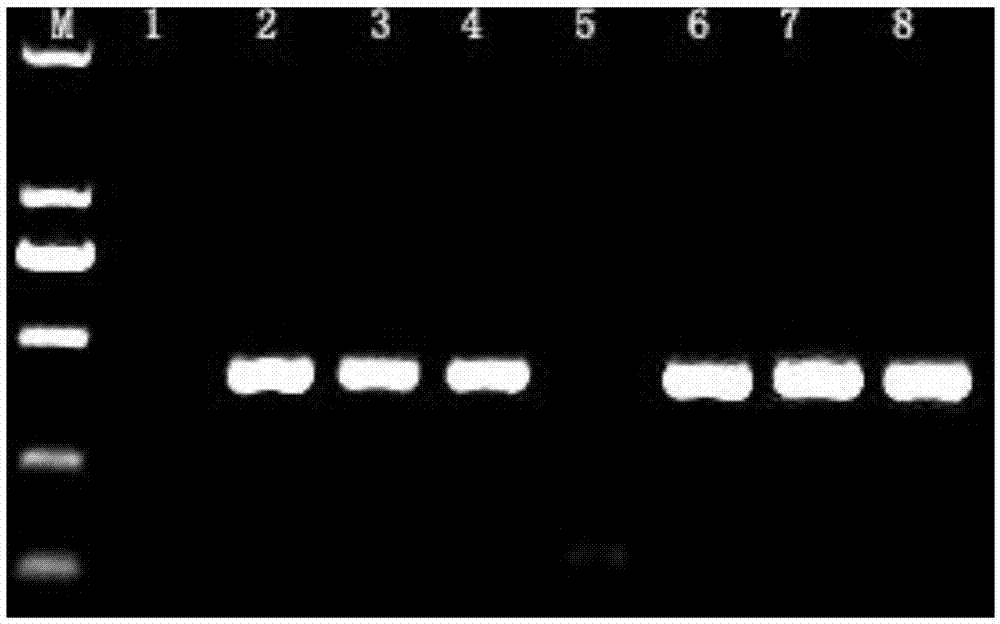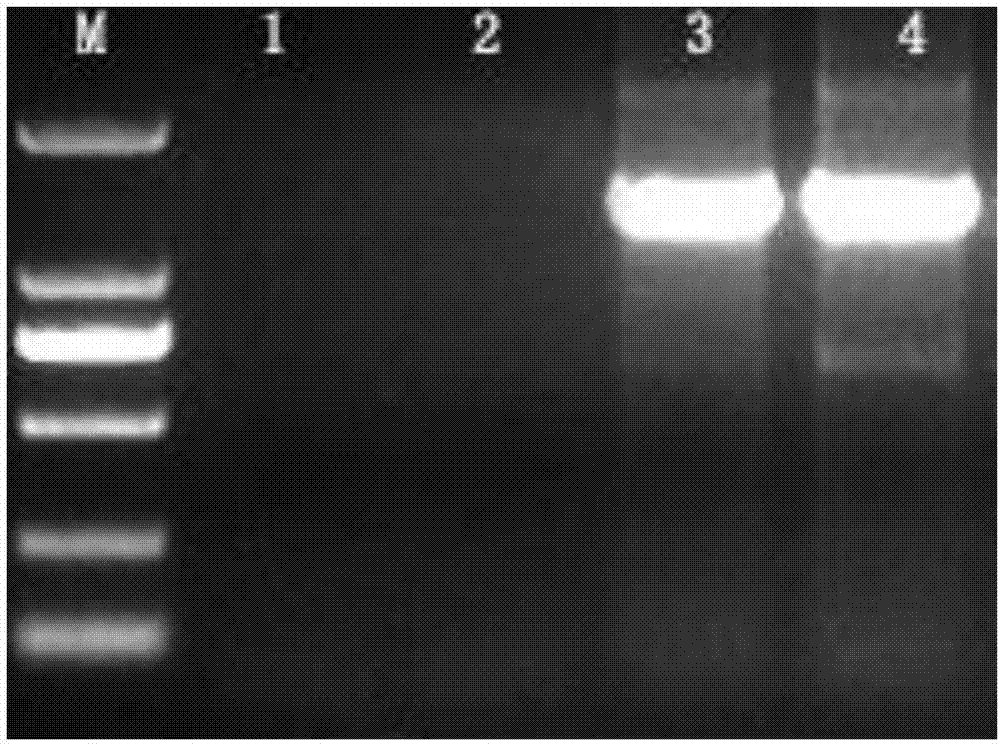Universal primer for identifying pathogenic species of potato scabs and detection method
A technology for potato scab and scab bacteria, applied in the direction of microorganism-based methods, biochemical equipment and methods, and microbial measurement/inspection, can solve the problems of low identification efficiency, poor accuracy, and low identification resolution, and achieve identification The effect of high efficiency, good accuracy and high resolution
- Summary
- Abstract
- Description
- Claims
- Application Information
AI Technical Summary
Problems solved by technology
Method used
Image
Examples
specific Embodiment approach 1
[0025] Specific embodiment one: a kind of general primer for identification of potato scab pathogenic bacteria species of the present embodiment, the primer pair is as follows:
[0026] gyrBF2: 5'-TCTGCACGGYGTSGGYGTCTC-3'
[0027] gyrBR2: 5'-TTGCGGGAGTTGAGGTAC-3'.
[0028] The primer sequences of this embodiment are shown in Sequence Listing Seq ID No: 8 and Sequence Listing Seq ID No: 9.
specific Embodiment approach 2
[0029] Specific embodiment two: a kind of detection method for identifying potato scab pathogen species of the present embodiment, it is carried out according to the following steps:
[0030] 1. Extract the genomic DNA of the sample to be tested;
[0031] 2. Use the primers of the specific embodiment 1 as identification primers, and use the DNA extracted in step 1 as a template to carry out PCR amplification reaction;
[0032] 3. The PCR products were electrophoresed on a 1% agarose gel;
[0033] 4. Analyze the amplified fragment: there is an amplified band at the 400bp position, indicating that the PCR product of the sample can be sequenced, and then sequenced;
[0034] 5. Compare the sequenced sequence with the data in the gene database, and after the alignment is successful, the detection for identifying the species of potato scab pathogens is completed.
specific Embodiment approach 3
[0035] Embodiment 3: The difference between this embodiment and Embodiment 2 is that the PCR system for PCR amplification is as follows:
[0036]
[0037] PCR amplification conditions: pre-denaturation at 95 °C for 5 min; denaturation at 95 °C for 45 s, annealing at 50-65 °C for 45 s, extension at 72 °C for 90 s, 35 cycles, extension at 72 °C for 10 min, and storage at 4 °C.
[0038] Others are the same as in the second embodiment.
PUM
 Login to View More
Login to View More Abstract
Description
Claims
Application Information
 Login to View More
Login to View More - R&D
- Intellectual Property
- Life Sciences
- Materials
- Tech Scout
- Unparalleled Data Quality
- Higher Quality Content
- 60% Fewer Hallucinations
Browse by: Latest US Patents, China's latest patents, Technical Efficacy Thesaurus, Application Domain, Technology Topic, Popular Technical Reports.
© 2025 PatSnap. All rights reserved.Legal|Privacy policy|Modern Slavery Act Transparency Statement|Sitemap|About US| Contact US: help@patsnap.com



